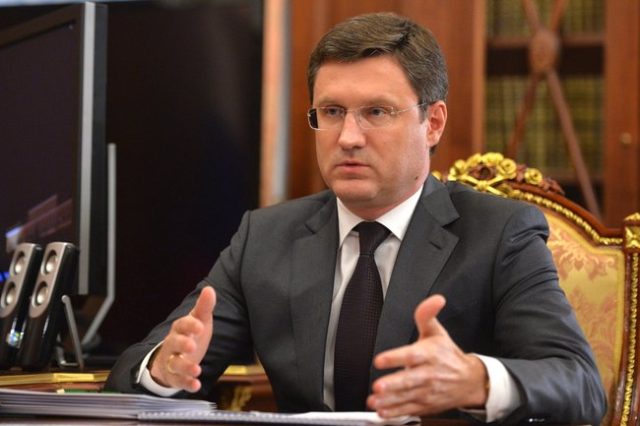
Russian Government Builds Novel Framework for Controlling Regions
Publication: Eurasia Daily Monitor Volume: 18 Issue: 120
By:

On July 19, Russia’s Prime Minister Mikhail Mishustin stated that the deputy ministers in his cabinet will each oversee one of the country’s eight Federal Districts. These subnational macro units are comprised, on average, of a dozen neighboring federal subjects (republics, oblasts, krais, etc.) in the Russian Federation. The decision followed the initial announcement made by President Vladimir Putin in June, during his phone-in press conference; but it appears that the idea originated in and was developed by the government (pravitelstvo) rather than the president of Russia (RBK, July 19). Moscow’s appointees will oversee the development and implementation of investment strategies, national projects, and state programs in the assigned territories, as well as state regulation in the provision of financial assistance to the regions. Deputy Prime Minister Aleksandr Novak was appointed to oversee the North Caucasian Federal District (Government.ru, July 19). Heretofore, Novak has specialized on issues related to energy. So his appointment might signify that the Russian government eyes a shift from the development of tourism in the North Caucasus to energy-related projects.
Alexander Novak has held a deputy prime minister post since November 2020. Prior to his appointment, he was the minister of energy and a deputy minister of finance. Previously he was also employed at the Norilsk Mining Company and as a deputy governor of Krasnoyarsk Krai (RBK, July 19). Novak’s background in Krasnoyarsk Krai indicates his close association with one of the Kremlin’s previous plenipotentiary representatives in the North Caucasus—Aleksandr Khloponin (in 2010–2014). As the president’s representative in the region, Khloponin propagated ambitious plans for the development of the North Caucasus. The key aspect of the program included revamping and relaunching the tourism sector of the economy. Every republic of the North Caucasus was expected to develop ski resorts and other attractions where Russian tourists would flock (see EDM, September 29, 2011). Despite some investments and the implementation of infrastructural projects, the overall impact of the program turned out to be minuscule (see EDM, July 29, 2013). The Russian government institutions responsible for the development of the North Caucasus gradually diminished in size and scope. In January 2020, the Ministry of the Russian Federation for the North Caucasus was abolished. And in June 2021, Prime Minister Mishustin openly recognized the failure of government programs in the region. In particular, he pointed out that the central government’s investments in the North Caucasus did not help to boost private investment, as happens elsewhere in the Russian Federation (RIA Novosti, June 15).
The economic backwardness of the North Caucasus is not a new social phenomenon. Much of it was attributed to the precarious security situation in the area: first, the two successive Russian-Chechen wars, and then, the ripples that they sent across all of the neighboring republics. However, as the insurgent violence plummeted to negligibly low levels in the past several years, the Russian government has been under increasing pressure to show an improvement in the region’s economic development. Moscow’s logic appears to be that increased oversight will result in better economic performance across the country, including in the North Caucasus. But analysts have discerned flaws in this plan.
Some regional experts point out that Aleksandr Novak has little prior knowledge of the North Caucasus and its economy. Moreover, another deputy prime minister of Russia, Yuri Trutnev, is already overseeing development programs in the North Caucasian Federal District. Thus, the responsibilities of the two bureaucrats now seem to overlap, which potentially might create conflicts and inefficiencies. Other commentators argue that having to supervise federal districts in Russia is an extra burden for the already busy Moscow officials, who will therefore try to limit their responsibilities to a minimum—primarily to just controlling the expenditures of budgetary funds (Kavkazsky Uzel, July 19).
The new appointments are interesting mostly because of their source rather than their substance. It appears that the government of Russia, rather than the all-powerful presidential administration, pushed for the new structure of governance whereby deputy prime ministers will oversee the economic development of federal districts. This setup might become a litmus test for the efficiency of Prime Minister Mikhail Mishustin and his ability to manage the country’s economy. It is not difficult to imagine that, as the next step, his deputy ministers will supersede the presidential plenipotentiaries in federal districts because the former will control financial flows while the latter become mere figureheads. This could put Mishustin on a collision course with the administration of Vladimir Putin, unless this is a preplanned course of action.
The North Caucasus is the thorniest territory in Russia due to its history of secession and conflict as well as chronic economic problems. Showing progress in the region, therefore, will be one of Mishustin’s priorities. As the security concerns in the North Caucasus subside, economic and political issues come to the forefront. The new structure of governance is supposed to improve the economic indicators of Russian regions; but in practice, it might enhance the role of the government in controlling them. Despite the end of the insurgency, the North Caucasus still occupies an important niche in the Russian Federation as a vulnerable and potentially explosive territory. As such, it is likely to play an outsized role in domestic Russian politics in the coming years.



